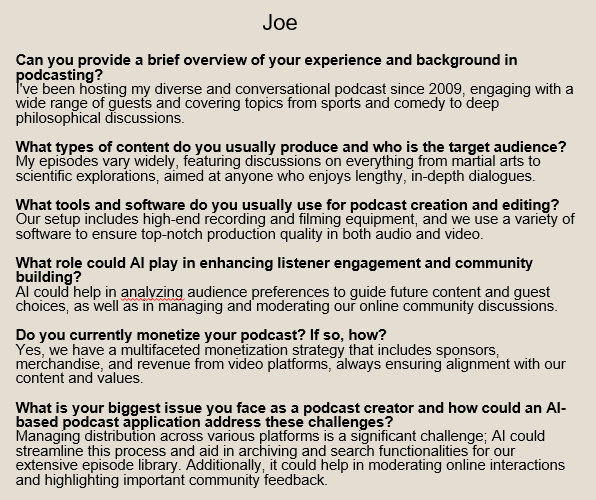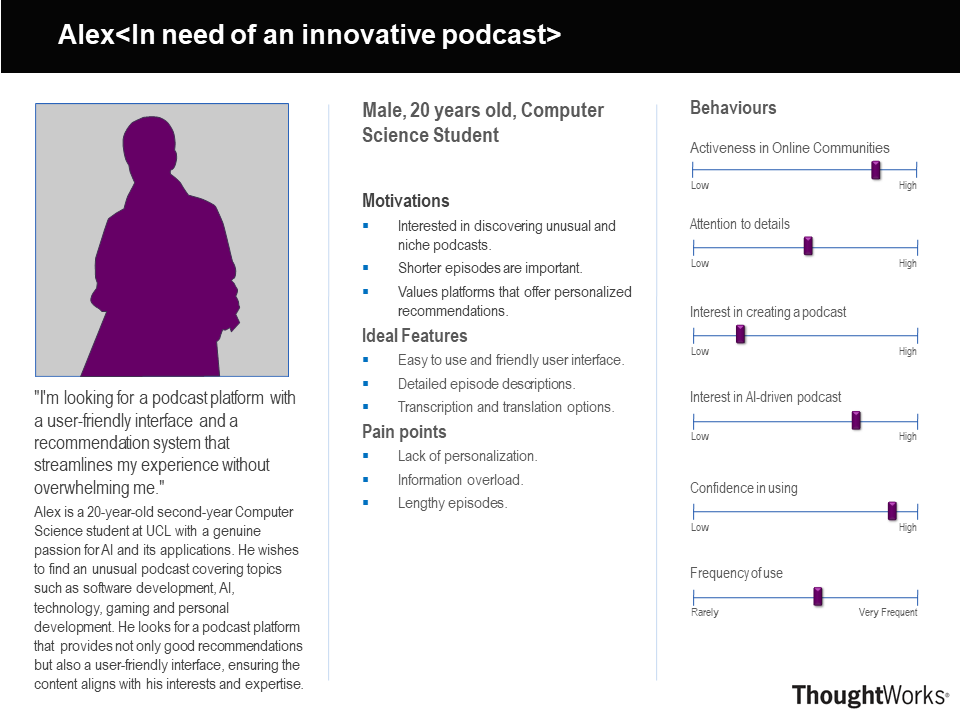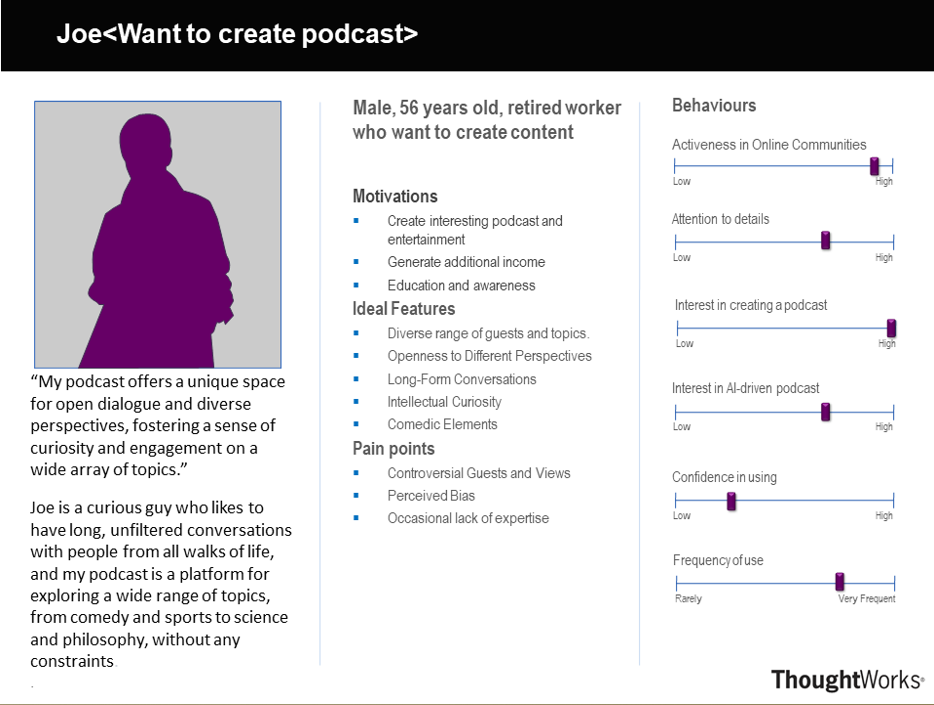Project Background
In response to the growing demand for something fresh and personalized in the podcast world, our project tackles the challenge users face when seeking new and user-friendly content. We're developing an AI-driven podcast that makes use of Artificial Intelligence to create text, audio, and video content for our project. In this journey, guided by John McNamara (IMB), our IXN industry project mentor, we recognize the vast potential within the somewhat undiscovered realm of AI podcasting, where our innovative approach promises to unravel exciting possibilities and reshape the way listeners engage with content.
Project Objectives
Our project aims to create an innovative AI-driven podcast platform, with a primary focus on leveraging artificial intelligence technologies to enhance the podcasting experience. It will be web-based, providing users with seamless accessibility and engagement.
The main objectives included:
- Utilise AI tools to generate text, audio and video for the episodes.
- Analyse other podcast and scripts to ensure high quality of the script.
- Provide users with a feature to suggest a topic and get an episode in return.
- Provide a feature to upload a pdf file to be converted into an episode.
- Experiment with music, sound effects, and background ambiance to create unique atmospheres for different episodes.
- Explore voice cloning technology to replicate voices for various purposes within episodes.
Requirement Gathering
In order to gather the requirements, we conducted 2 interviews: one with Alex (Podcast Listener) and one with Joe (Podcast Creator). We decided to use semi structured format as this allowed us to ask follow-up questions, making it easier to get more details.
These two interviews helped us understand exactly what features we need to implement and what aspects of our podcast the potential users are looking for.

Interview 1 (Alex)

Interview 2 (Joe)
Personas
After conducting the interviews, we created 2 personas and scenarios for our potential users just so we can have a deeper understanding of their wants and needs.
Each persona includes a short background of the potential user as well as a summary of the ideal features, motivations and pain points to identify what they would like to find in our podcast and what elements they do not want our podcast to have.

Persona 1 (Alex)

Persona 2 (Joe)
Alex, a 20-year-old computer science student at UCL, seeks a podcast platform featuring niche topics like software development, AI, technology, gaming, and personal development. He values platforms with personalized recommendations and user-friendly interfaces, emphasizing the importance of detailed episode descriptions . Alex's main concerns include a lack of personalization, information overload, and lengthy episodes, driving his preference for platforms that streamline his experience.
Whereas Joe, a 56-year-old retired worker, seeks to create engaging content through his podcast, fostering diverse perspectives and open dialogue on various topics. He values features like diverse guests, long-form conversations, and intellectual curiosity, but faces challenges with controversial guests and perceived bias.
Considering the needs of our potential users, we are committed to addressing them by striving to provide a platform that caters to their diverse interests and preferences, while also ensuring there are no pain points.
Moscow Requirement List
We categorized our project requirements into four groups: must-have, should-have, could-have, and won't-have, providing a structured approach to prioritize and manage our project requirements.
-
MUSTs
Use appropriate music (music for intro, outro, etc.).
Create a podcast structure (have intros, greetings, with meaningful filtered information).
Generate text for the script.
Convert text to speech (text to speech tool: eg use ElevenLabs).
Generate images used in videos.
Create a website to host podcast on.
Implement a scheme where an article (or any other pdf) can be transcribed to create a new episode on the topic of that source.
-
SHOULDs
Produce detailed episode descriptions.
Add user suggestions on topics (users could type a topic that they would like an episode to cover and get an episode in return).
Add a help page (which explains how to navigate the tool).
Add an episodes search (Based on the keywords or the name).
Clone voices of different people.
Have a diverse range of potential guests and topics.
Simulate interviews with historical figures.
-
COULDs
Add music based on sentiment.
Add comedic elements in the episodes (the user can select the style of the episode whether its comedic, formal, entertaining, etc).
Add saved tab.
Implement immersive 3d audio.
Add Light/Dark modes.
Allow users to download episodes.
Add share options.
-
WONT'HAVEs
Implement augmented reality.
Translate the website to other languages.

